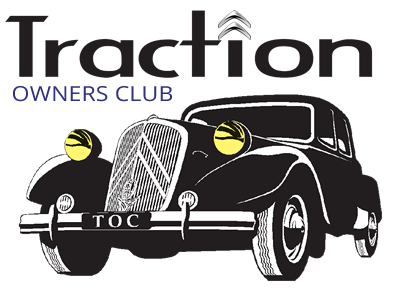ETHANOL in fuel – Our right to use 'Yesterday's Vehicles on Tomorrow's Roads.
Traction Owner’s Club › Forums › News & events › ETHANOL in fuel – Our right to use 'Yesterday's Vehicles on Tomorrow's Roads.
- This topic has 13 replies, 5 voices, and was last updated 4 years, 2 months ago by Dave Thornley.
-
AuthorPosts
-
16th August 2018 at 9:07 am #23666
Bernie
Participant<p style=”text-align: left;”>The following message from FHBVC offers owners of classic vehicles an opportunity to help “Preserve our right to use ‘Yesterday’s Vehicles on Tomorrow’s Roads” by taking part in a survey which I believe can be completed in about 5 minutes. Please spare the time (the deadline is 31st August).</p>
<p style=”text-align: left;”>Thank you,</p>
<p style=”text-align: left;”>B …………..</p>
<p style=”text-align: left;”> </p>
</p>
Help the Federation respond to Government consultation on the introduction of increased levels of ethanol in petrol.Dear Enthusiast,
The Department of Transport has issued a consultation document on the subject of introducing higher levels of ethanol in petrol.Many older vehicles are likely to suffer damage and possibly dangerous fuel leaks if the E10 grade of petrol is used without modification to their fuel systems.
For the purposes of this consultation the Government is focussing on vehicles more than 25 years old.
Whilst wishing to introduce the higher ethanol level E10 grade of fuel, the Government are guaranteeing a ‘protection grade’ of petrol at the E5 grade that is equivalent to the currently available 95 RON petrol. However this guarantee will only last until 2020 when further consultation will take place.
It is likely that on the introduction of E10 at the 95 RON level, the currently available ‘Super’ grades with an octane level of 97 RON or higher, will cease to be available.
The Federation has designed a survey on petrol useage in older vehicles which will provide valuable evidence in the consultation response.
Please complete the survey and help the Federation preserve our right to use ‘Yesterday’s Vehicles on Tomorrow’s Roads’.
The survey can be accessed by clicking this link :
<p style=”text-align: center;”>https://paulc1.typeform.com/to/Bt7HKS .</p>
If you wish to read the consultation document it can be found by following this link Department for Transport consultation :
<p style=”text-align: center;”>https://www.gov.uk/government/consultations/e10-petrol-consumer-protection-and-fuel-pump-labelling</p>
Please encourage your friends and fellow enthusiasts to complete the survey, just forward this email and they will be able to follow the survey link. The survey will close on 31 August 2018 in order to collate the results for the Federation’s response to the consultation. A copy of the response will be made available on the Federation’s website.Thank you for supporting the Federation of British Historic Vehicle Clubs and helping to keep historic vehicles on the road.
Paul Chasney
Director – Research16th August 2018 at 9:14 am #23667Bernie
ParticipantWhat a mess that was – here is V2 which I sincerely hope will be clearer ….

The following message from FHBVC offers owners of classic vehicles an opportunity to help “Preserve our right to use ‘Yesterday’s Vehicles on Tomorrow’s Roads” by taking part in a survey which I believe can be completed in about 5 minutes. Please spare the time (the deadline is 31st August).
Help the Federation respond to Government consultation on the introduction of increased levels of ethanol in petrol.
Dear Enthusiast,
The Department of Transport has issued a consultation document on the subject of introducing higher levels of ethanol in petrol.Many older vehicles are likely to suffer damage and possibly dangerous fuel leaks if the E10 grade of petrol is used without modification to their fuel systems.
For the purposes of this consultation the Government is focussing on vehicles more than 25 years old.
Whilst wishing to introduce the higher ethanol level E10 grade of fuel, the Government are guaranteeing a ‘protection grade’ of petrol at the E5 grade that is equivalent to the currently available 95 RON petrol. However this guarantee will only last until 2020 when further consultation will take place.
It is likely that on the introduction of E10 at the 95 RON level, the currently available ‘Super’ grades with an octane level of 97 RON or higher, will cease to be available.
The Federation has designed a survey on petrol useage in older vehicles which will provide valuable evidence in the consultation response.
Please complete the survey and help the Federation preserve our right to use ‘Yesterday’s Vehicles on Tomorrow’s Roads’.
The survey can be accessed by clicking this link :
If you wish to read the consultation document it can be found by following this link Department for Transport consultation :
https://www.gov.uk/government/consultations/e10-petrol-consumer-protection-and-fuel-pump-labelling
Please encourage your friends and fellow enthusiasts to complete the survey, just forward this email and they will be able to follow the survey link. The survey will close on 31 August 2018 in order to collate the results for the Federation’s response to the consultation. A copy of the response will be made available on the Federation’s website.
Thank you for supporting the Federation of British Historic Vehicle Clubs and helping to keep historic vehicles on the road.
Paul Chasney
Director – Research16th August 2018 at 9:24 am #23668David Faulkner
ParticipantLink to the survey doesn’t find the page Bernie because of the html around it, this one should work https://paulc1.typeform.com/to/Bt7HKS
16th August 2018 at 11:06 am #23669Bernie
ParticipantDavid,
Many thanks – that is weird because both links work on my desktop.
However, between my first and second postings the “introduction” seems to have got lost. I initially said:
“The following message from FHBVC offers owners of classic vehicles an opportunity to help “Preserve our right to use ‘Yesterday’s Vehicles on Tomorrow’s Roads” by taking part in a survey which can be completed in about 5 minutes. Please Spare the time – the deadline is 31st August.”
B…………….
16th August 2018 at 1:08 pm #23670David Faulkner
ParticipantI was referring to version 1 Bernie, my post was under version 1 so don’t know how it ended up under version 2.
OFF TOPIC but I have noticed that sometimes when you click ‘submit’ to post to the forum it takes a while before it actually appears and it seems like it’s a slow response from the database.
16th August 2018 at 5:42 pm #23671Chris
ParticipantThe survey is very quick and painless – and quite amusing if you tell it you don’t use 97 octane or higher.
Worth telling the Fed how much demand there will be for low ethanol content fuel.
Chris
7th July 2021 at 2:31 pm #28552Dave Thornley
ParticipantContinuing the saga of E5/E10. Was interested in reading in the Jan/Feb edition the differing views of a couple of classic engineering chaps. If anybody is worried by using ethanol fuels removing it is a fairly straight forward operation. Just search YouTube. Having done a bit of maths removing ethanol works out roughly the same as dosing ones fuel with an ethanol inhibitor. I think I would sway on the removal side so one is certain that there is no ethanol in the fuel to cause any problems from the beginning.
7th July 2021 at 6:36 pm #28553Bernie
ParticipantFolks,
A couple of years ago my local (all makes) car club invited a speaker from one of the companies marketing ethanol removal kits. The talk was interesting and fairly convincing and one kit was purchased for trial purposes.
Although it worked well enough, the process entailed multiple decanting operations – not the safest way to handle petrol at home. Water had to be added to the petrol and then thoroughly mixed to enable the water to absorb the ethanol. The mixture was then left to stand in a special container until the petrol and water seperated at which point the water, with the ethanol in solution, could be drawn off via a tap in the container leaving ethanol-free petrol.
The process meant only a couple of gallons could practically be treated at a time and to produce a “tankfull” would certainly be a long and potentially hazardous process. In addition, this was not a process that could be carried out just anywhere and it was clearly going to be necessary to revert to fuel containing ethanol once the tank required filling on a long trip.
The conclusion was that the kit did what it was supposed to do but, in practice, it was probably really only suited to low mileage, low consumption, vehicles that rarely ventured beyond the capacity of one full tank of fuel.
B….
8th July 2021 at 4:29 pm #28554Dave Thornley
ParticipantAgree about it being time consuming, well much more so than than dumping a bottle of something in the tank before refuelling. I reckon you could use a 25L container at most. Only hazardous, in my opinion, if one is careless, uninformed, an idiot, or a combination of any of these. The jury seems to be still out as to the efficiency of these ethanol defeating additives.
8th July 2021 at 8:22 pm #28555Bernie
Participant25 litres of petrol will weigh almost 20 kg. I would not want to be manhandling that to pour it between containers, no matter how safely I thought I could do it.
B…
21st September 2021 at 11:06 am #28819Dave Thornley
ParticipantLooks like the only ethanol free fuel, at present is Esso Synergy+99. Mind you in lots of the country this is unavailable. Luckily I have a nearby garge selling it. Somewhat more expensive than Asda but at least will not harm the old girl.
29th September 2021 at 7:01 pm #28830Jonathan
ParticipantFor those in Sussex “Power” are apparently zero Ethanol
FIND THE NEAREST STATION,
POWER UP AND STEP ON THE GAS
BEXHILL SERVICE STATION
Bexhill – TN39 3LRBOLNEY CROSS SERVICE STATION
A272 – Nr. Cowfold – RH17 5QUCLAYHILL SERVICE STATION
A26 – Nr. Lewes – BN8 5RUHAWKSWOOD SERVICE STATION
A271 – Hailsham – BN27 1UGHERSTMONCEUX SERVICE STATION
A271 – Herstmonceux – BN27 4JUHORAM SERVICE STATION
A267 – Nr. Heathfield – TN21 0BN
NORTH HEATH SERVICE STATION
Pulborough – RH20 1DNOLD TOWN SERVICE STATION
Eastbourne – BN21 1HQSELMESTON SERVICE STATION
A27 – Nr. Polegate – BN26 6UESTORRINGTON SERVICE STATION
Old Mill Drive, off A283 – Storrington – RH20 4NFTRINITY PLACE SERVICE STATION
Eastbourne – BN21 3BZUCKFIELD SERVICE STATION
Uckfield – TN22 1EJ2nd October 2021 at 10:57 pm #28835Chris
ParticipantThanks Jonathan. That’s useful (or will be when the stations open up again).
11th October 2021 at 10:31 am #28848Dave Thornley
ParticipantUsing a measuring cylinder one can always check out a sample to see if it is actually ethanol free. The Esso synergy I got the other week is, as it damned well should be cost enough the before the current hike.
-
AuthorPosts
- You must be logged in to reply to this topic.
